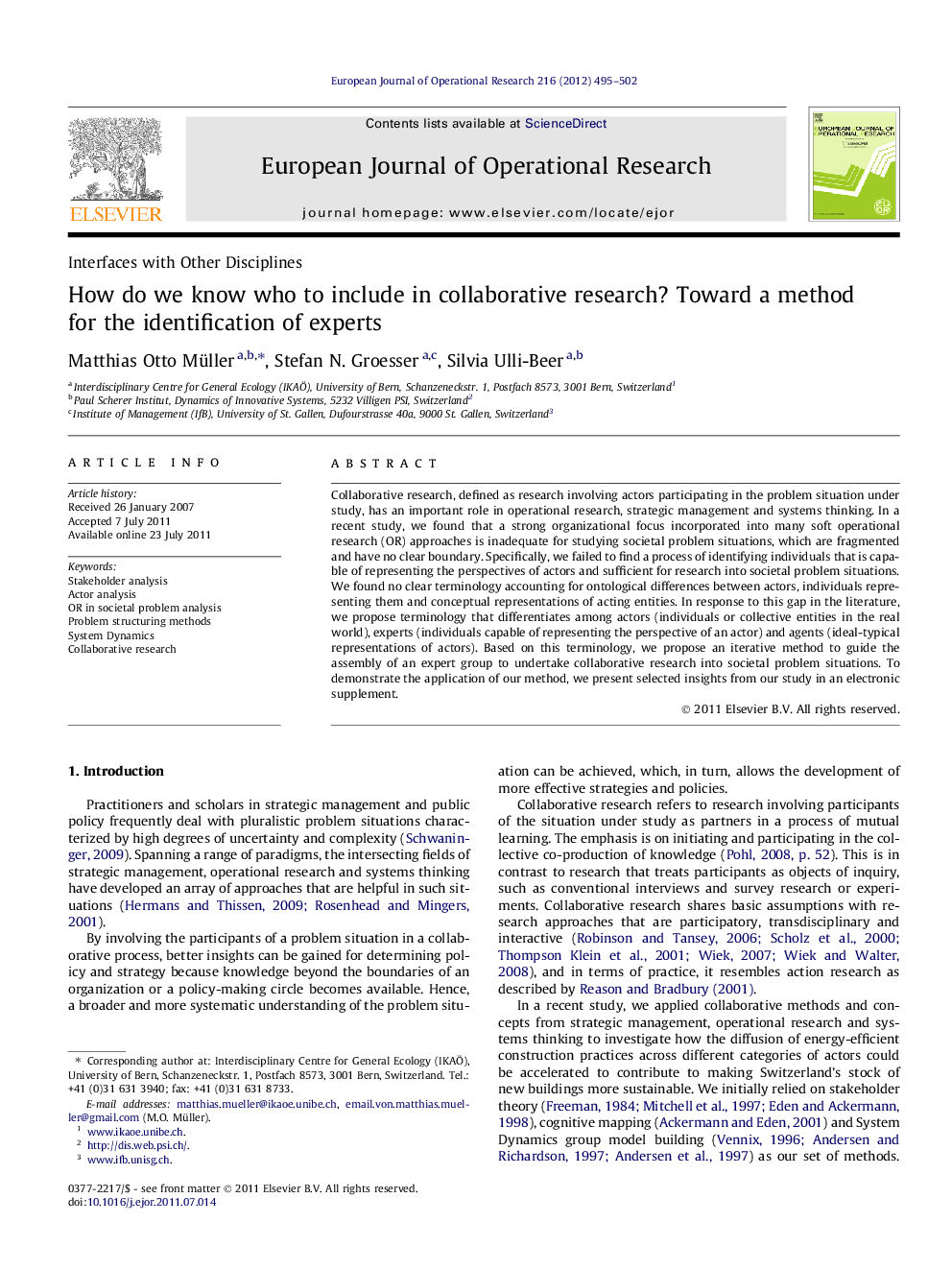| Article ID | Journal | Published Year | Pages | File Type |
|---|---|---|---|---|
| 480188 | European Journal of Operational Research | 2012 | 8 Pages |
Collaborative research, defined as research involving actors participating in the problem situation under study, has an important role in operational research, strategic management and systems thinking. In a recent study, we found that a strong organizational focus incorporated into many soft operational research (OR) approaches is inadequate for studying societal problem situations, which are fragmented and have no clear boundary. Specifically, we failed to find a process of identifying individuals that is capable of representing the perspectives of actors and sufficient for research into societal problem situations. We found no clear terminology accounting for ontological differences between actors, individuals representing them and conceptual representations of acting entities. In response to this gap in the literature, we propose terminology that differentiates among actors (individuals or collective entities in the real world), experts (individuals capable of representing the perspective of an actor) and agents (ideal-typical representations of actors). Based on this terminology, we propose an iterative method to guide the assembly of an expert group to undertake collaborative research into societal problem situations. To demonstrate the application of our method, we present selected insights from our study in an electronic supplement.
► We describe societal problem situations. ► Our terminology differentiates between individuals, actors and agents. ► Experts are individuals representing actors of a societal problem situation. ► We propose a method for identifying experts. ► We describe a collaborative research project.
